
Young Investigator competition, poster session award winners announced on final day of 2019 MHSRS
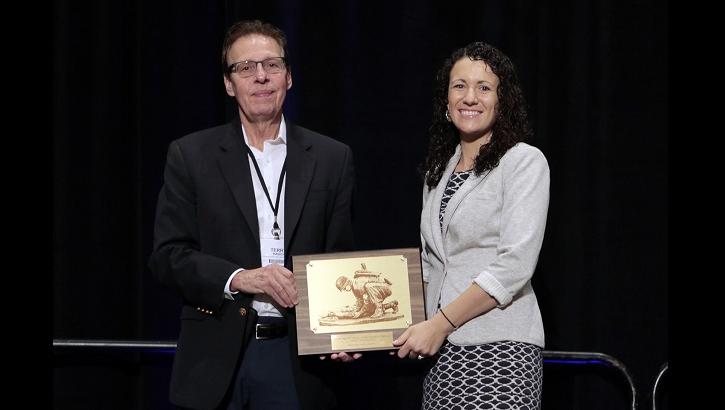
Dr. Briana Vecchio-Pagan from the Johns Hopkins University Applied Physics Laboratory in Laurel, Maryland accepts her poster presentation award on Thursday, August 22nd from Dr. Terry Rauch, acting deputy assistant secretary of defense for health readiness policy and oversight at DHA. (MHS photo)
KISSIMMEE, Fla. — The 2019 Military Health System Research Symposium concluded on Thursday, August 22nd at the Gaylord Palms Resort and Convention Center. The final plenary session featured Young Investigator competition and poster session award winners.
The Young Investigator competition continues to be the MHSRS’s most popular and competitive category, according to Dr. Kelley Brix, director, interagency research coordination, research and development directorate at the Defense Health Agency, who announced the winners. Reviewers received a record 368 abstract submissions for this category, ten of which were selected for presentation at the symposium. Dr. Michael J. Morris, professor of medicine at the Uniformed Services University for Health Sciences and Young Investigator competition session chair, and Dr. Terry Rauch, acting deputy assistant secretary of defense for health readiness policy and oversight, joined Brix on stage to present the awards.
The first place 2019 MHSRS Young Investigator Competition award winner was Army Capt. Kaitlin Morte, Madigan Army Medical Center in Tacoma, Washington. Her research is titled, “Early Outcomes Following Trauma Related to Gender: A Matched Analysis of Military Service Members in the Department of Defense Trauma Registry.”
The purpose of Morte’s study was to define gender-based differences in early combat trauma outcomes among service members. Contrary to the civilian trauma literature, the study showed no significant difference in early mortality between male and female combat casualties in a matched cohort. Morte’s conclusion stated that as the proportion of females involved in combat operations continues to increase, prospective studies should be performed to better define injury patterns, as well as early and late outcomes related to military trauma in the female population.
The second place 2019 MHSRS Young Investigator Competition award winner was Teryn Roberts, Ph.D., The Geneva Foundation in Tacoma, Washington. His research is titled, “Evaluation of Tethered-liquid Perfluorocarbon Coating for Heparin-free Extracorporeal Life Support: A 72-hour Life Support Intensive Care Unit Study.” Dr. Andre Bachinsky accepted the award on behalf of Dr. Roberts.
Roberts studied how to extend the use of extracorporeal life support therapy, which is most often associated with organ transplants. Extending such life support therapy is limited by blood clots that occur when blood contacts the surfaces of the devices. To address this challenge and to reduce use of medicines that prevent blood clots, Roberts studied a possible coating that might stop bleeding and blood clots that are caused by stress and contact with the machine materials. The study concluded that neither the tested coatings nor current standard of care are optimal solutions to prevent blood clotting, but the researchers plan to study and evaluate other types of materials.
The third place 2019 MHSRS Young Investigator Competition award winner was Air Force Capt. Carl Beyer, University of California Davis Medical Center, Sacramento, California and David Grant Air Force Medical Center, Travis Air Force Base, California. His research is titled, “Risk Factors for Persistent Opioid Use and Clinically Recognized Opioid Abuse Following Battle Injury in United States Military Personnel.”
Beyer’s is the first study to evaluate the prevalence of persistent opioid use following battle injury in the recent conflicts in Iraq and Afghanistan. His research found that almost 15% of injured warfighters in this cohort experienced persistent opioid use and 6.7% developed opioid abuse. Multidisciplinary interventions that target identified risk factors, such as reducing discharge opioid prescriptions and improving mental healthcare, might reduce the burden of opioid abuse in combat casualties.
Brix also announced the 2019 MHSRS poster presentation winners, chosen from almost 1,500 posters presented at this year’s symposium. A committee reviewed judges’ scores to make the final award selections.
The “Best in Show” poster was awarded to Dr. Russ Kotwal, Joint Trauma System, Joint Base San Antonio – Fort Sam Houston, Texas for “A Descriptive Study of U.S. Special Operations Command Fatalities, 2001-2018.”
The August 20 first poster session winners are:
First Place:
“Spatiotemporal Profiling of Bacterial Communities and Interpersonal Interactions to Capture Transmission Events.” Author Dr. Briana Vecchio-Pagan, The Johns Hopkins University Applied Physics Laboratory, Laurel, Maryland.
Second Place:
“In vitro Validation of Genetic Elements Conferring Neuronal Hypoxia Tolerance using CRISPR/Cas9 System and Microelectrode Arrays.” Author Dr. Oksana Pavlyuk, U.S. Air Force School of Aerospace Medicine, Wright-Patterson Air Force Base, Dayton, Ohio and UES Inc., Dayton, Ohio.
Third Place:
“Enhanced Non-invasive Peripheral Nerve Stimulation for Sensory Restoration and Neuropathic Pain Treatment.” Author Mr. Andres Pena, Florida International University, Miami, Florida.
Honorable Mention:
“Use of Mobile Technology Paired with Heart Rate Monitor to Remotely Quantify Behavioral Health Markers among Military Reservists and First Responders.” Author Dr. Maria Davila, University of North Carolina, Chapel Hill, North Carolina.
Honorable Mention:
“In-office, In-home, and Telebehavioral-health Cognitive Processing Therapy for Combat-related PTSD: Preliminary Results of a Randomized Clinical Trial.” Author Dr. Alan Peterson, University of Texas Health Science Center at San Antonio, San Antonio, Texas.
The August 21st second poster session winners are:
First Place:
“Rapid Intramuscular Administration of TXA Results in Equivalent Total Drug Exposure and Reversal of Hyperfibrinolysis in a Swine Controlled Hermorrhage Model.” Author Air Force Capt. Marguerite Spruce, David Grant Medical Center Clinical Investigation Facility, Travis Air Force Base, California.
Second Place:
“Cold-stored Platelets Have Better Preserved Contractile Function in Comparison to Room Temperature-stored Platelets over 21 Days.” Author Ms. Prajeeda Nair, U.S. Army Institute of Surgical Research, Fort Sam Houston, Texas.
Third Place:
“Associations Between an Integrated Musculoskeletal Risk Mitigation Program and Self-Reported Pain During U.S. Military Training.” Author Carolyn Dartt, Henry M. Jackson Foundation and the Uniformed Services University of the Health Sciences, Bethesda, Maryland.
Honorable Mention:
“Percutaneous Peripheral Nerve Stimulation Provides Relief of Chronic Pain to Enable Improvements in Function Following Amputation.” Author Dr. Steven Cohen, Walter Reed National Military Medical Center, Bethesda, Maryland.
Honorable Mention:
“Gastroesophageal Resuscitative Occlusion of the Aorta.” Author Mr. Brendan McCracken, University of Michigan, Ann Arbor, Michigan.
Navy Medicine researchers kick off 2019 Military Health System Research Symposium with strong showing
Article
8/23/2019
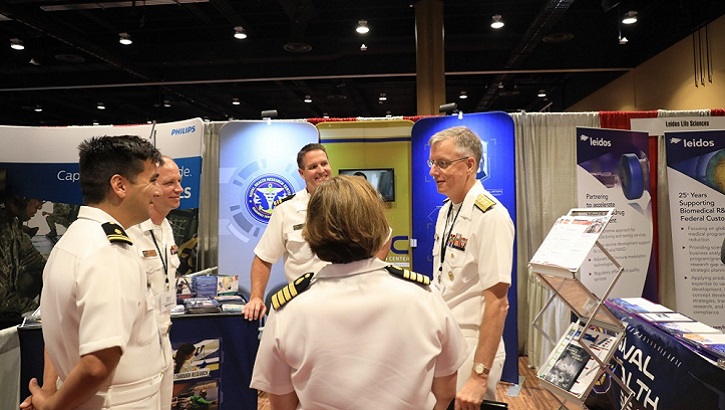
Dozens of scientists from Navy are presenting their work
Supporting the warfighter of today with innovation of tomorrow
Article
8/22/2019
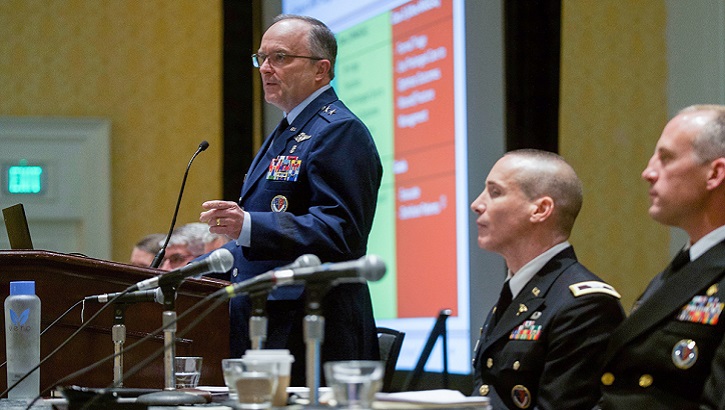
Air Force Maj. Gen. Payne, panelists describe Defense Health Agency combat support role
MHSRS 2019 Army Maj. Nicholas Koreerat
Video
8/22/2019

Army Maj. Nicholas Koreerat talks about his poster research
MHSRS 2019 Navy Lt. Cdr. Andrew Olsen
Video
8/22/2019

Navy Lt. Cdr. Andrew Olsen speaks about his research
MHSRS 2019 Air Force Col. Eveline Yao, USSOCOM Surgeon General
Video
8/22/2019

Air Force Col. Eveline Yao, speaks about the relationship between USSOCOM and MHS research.
MHSRS 2019 Army Col. Deydre Teyhan and Command Sgt. Maj. Natasha Santiago
Video
8/22/2019

Army Col. Deydre Teyhan and Army Command Sgt. Maj. Natasha Santiago speak about WRAIR at MHSRS
MHSRS 2019 Army Sgt. 1st Class Noah Gaylor
Video
8/22/2019

Army Sgt. 1st Class Noah Gaylor, a combat medic, talks about his experience at MHSRS 2019
Unexpected survivors: Tapping the past to inform the future of casualty care
Article
8/21/2019
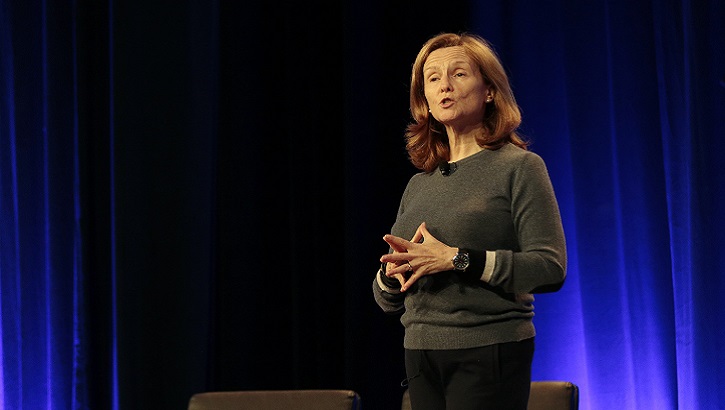
Plenary speakers focus on expanding readiness of providers and teams
Research for Readiness: Military Health System kicks off annual symposium
Article
8/20/2019
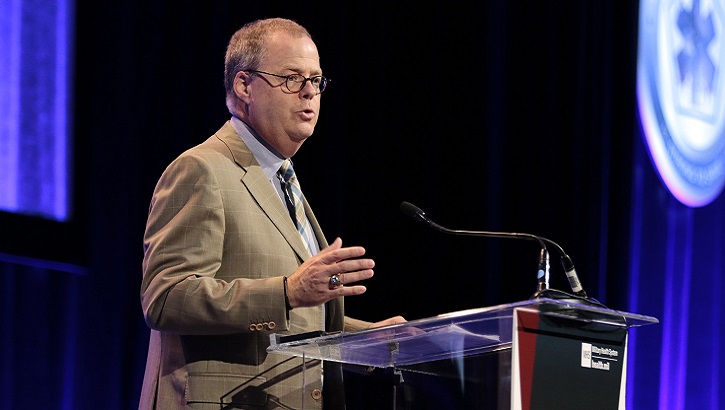
Research, development ensures service members are better prepared, better protected, better cared for
Individuals, teams honored at MHSRS for exemplary research
Article
8/20/2019
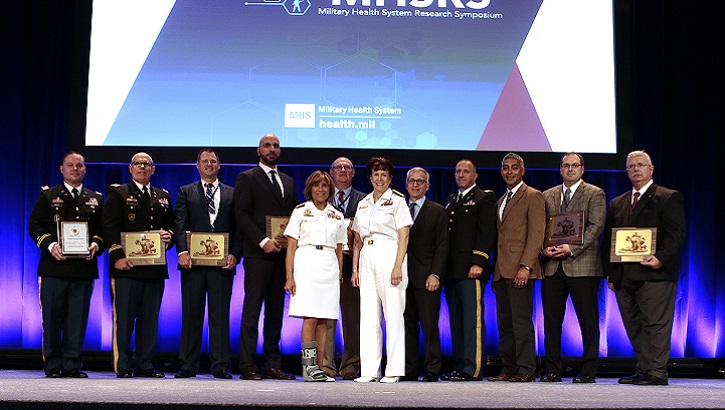
New nurse researcher award debuts this year
Call for abstracts open for 2019 Military Health System Research Symposium
Article
2/11/2019
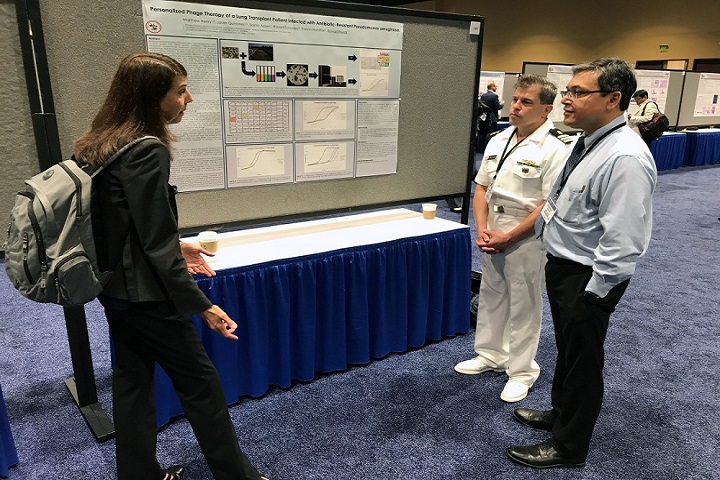
MHSRS is the DoD’s premier scientific meeting and addresses the unique medical needs of the Warfighter
MHSRS 2018 Dr. Yvonne Maddox
Video
8/23/2018

MHSRS attendees were asked about their impressions and thoughts on the symposium.
MHSRS 2018 Tim Clarke
Video
8/23/2018

MHSRS attendees were asked about their impressions and thoughts on the symposium.
MHSRS Young Investigator competition awards announced
Article
8/23/2018
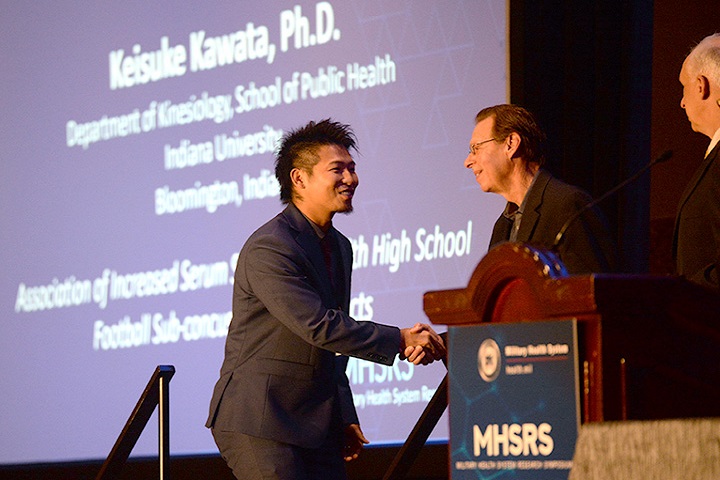
Three take top honors in highly competitive field
Beyond the Golden Hour to the Platinum Ten Minutes
Article
8/23/2018
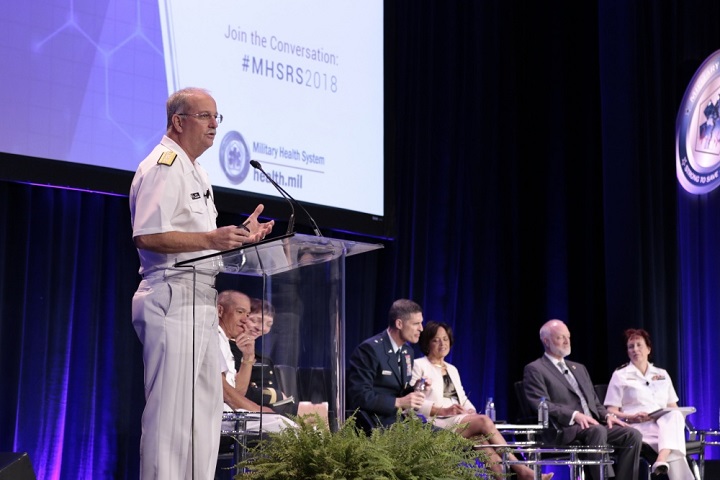
The next fight is going to be very different from past conflicts































No hay comentarios:
Publicar un comentario